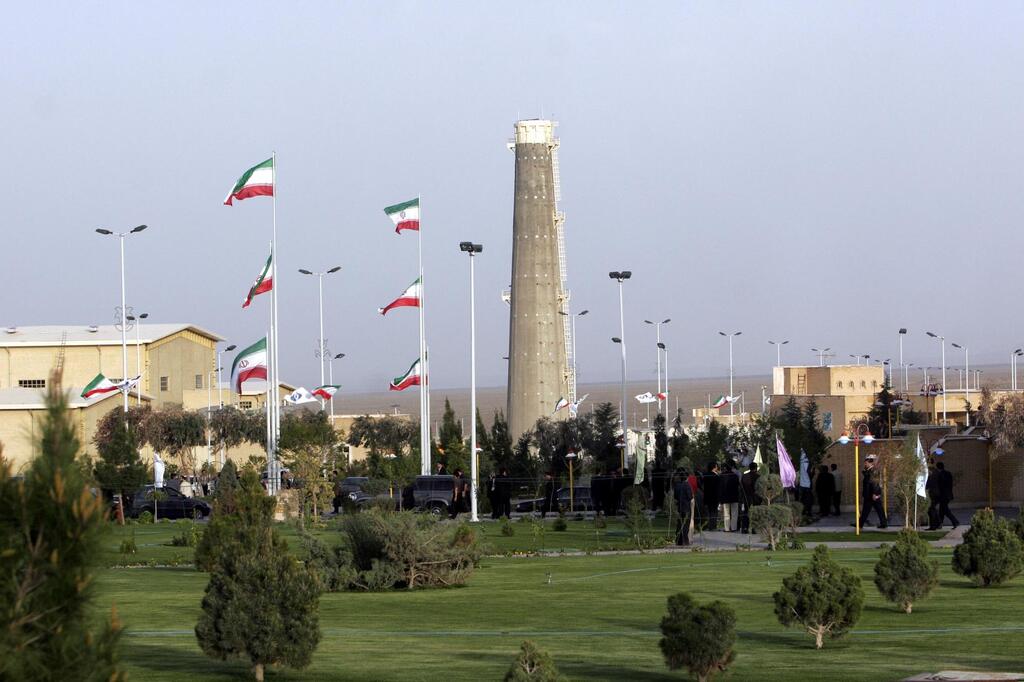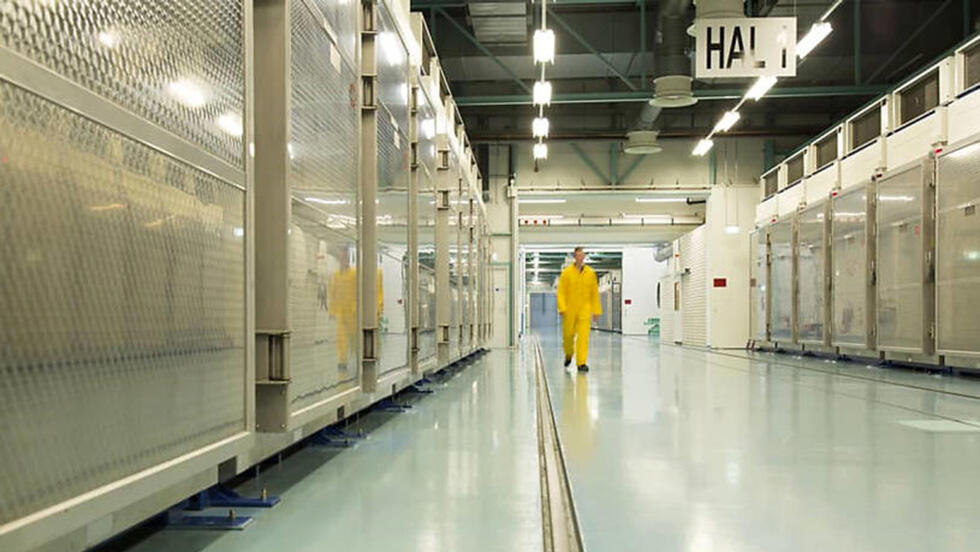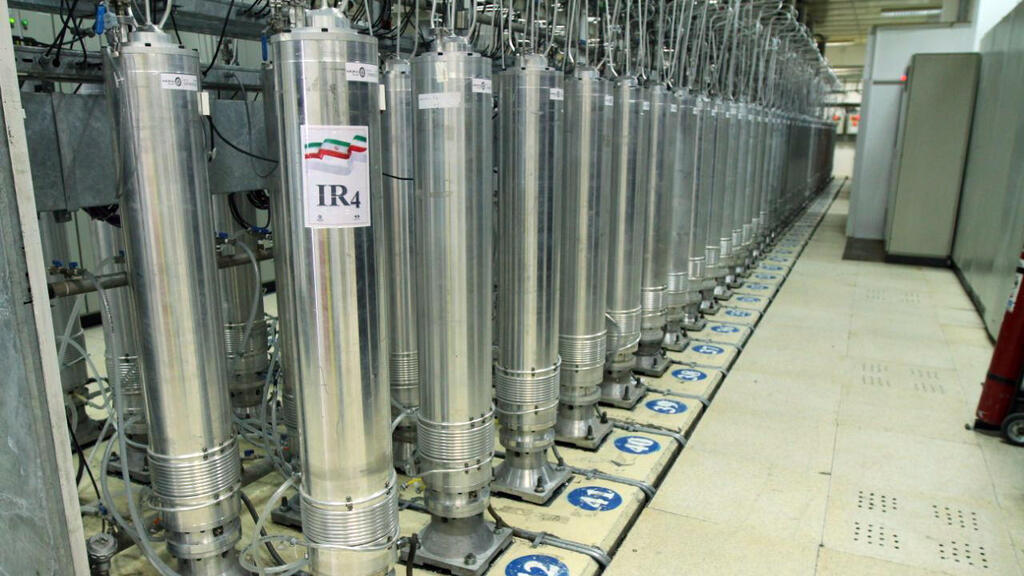Israel continues the war in Gaza and Lebanon to dismantle and eliminate Hamas' military, governmental, and organizational capabilities, kill its leaders, bring back the hostages, and confront Hezbollah to allow the evacuated citizens to return home. At the same time, Iranian Supreme Leader Ali Khamenei continues his ultimate strategy to achieve an atomic weapon of mass destruction.
Unfortunately, many in Israel, the West, and the International Atomic Energy Agency (IAEA) are falling again and again into the clerical regime's sophisticated trap. The Israeli leadership, hopefully together with the U.S. (but it will probably happen only after elections in November) should make a substantial switch in their working priorities to prevent Iran from reaching its goal.
For more than two decades, Iran has continued its efforts to enhance its nuclear weapons capability –mainly by enriching uranium – causing Israel and the world to concentrate on the fissile material. The International Atomic Energy Agency recently confirmed that Iran has a huge stockpile of uranium enriched to 60%, as well as more enriched to 20%, and the IAEA board of governors adopted the E3 (France, Germany, U.K.) proposed resolution to censure Iran for the violations and lack of cooperation with the agency. The Biden administration tried to block it, but joined the resolution when it understood its efforts to block it had failed.
Tehran has enough enriched uranium to create weapons-grade material for seven nuclear weapons in about two weeks to a month, according to experts' analyses. But we all must realize that Iran's decision not to enrich uranium now to 90% is meaningless. The 20% enriched uranium is more than 90% of the effort required to make weapons-grade uranium, and 60% enrichment is 98% of the needed time. This is why Iran decided to stop before 90% until after it finished all the other parts needed to build a nuclear device.
Iran is causing Israel and the world to continue their fight only against the amounts of enriched uranium, the width and depth of enrichment facilities, and the number of installed centrifuges, exactly as is happening now, while waiting for Iran to break the 90% barrier. But this is not going to happen because Iran will do it only during the last month.
Israel must adopt a totally new approach, concentrating mainly on two main efforts: Iran's weaponization actions, and weakening the regime hoping it will lead to its replacement. Israel should continue the fight against Iran's enrichment facilities (especially against the new deep underground facility being built near Natanz) and uranium stockpiles, but it should not be the only goal, and for sure not priority. It was the right direction for almost two decades, but not anymore.
Nuclear scientists in Teheran revived the weaponization program, doing it under a deniability umbrella, working toward completing as many parts and technologies as needed for the nuclear warheads. U.S. and Israeli intelligence agencies believe this weaponization work is not yet officially approved by the supreme leader, but even if he has not yet given the go-ahead approval, there is no doubt he knows what they are doing. The knowledge is continuing to accumulate in areas such as special materials, simulation, fast detonators, computerized models, and many other related areas. The work is being done, of course, under academic and "civilian" excuses.
The agencies believe that without this work It will take 18 to 24 months once a decision is fully made, but the ongoing "scientific" efforts can significantly shorten this time. If, while doing it, Iran also moves enough weapons-grade enriched uranium to a secret underground site, with a small number of advanced centrifuges, Israel and the U.S. would find it very difficult to act militarily to stop Iran from becoming nuclear.
American and Israeli intelligence should focus on the Iranian weaponization development threat. Both countries should collect intelligence on the weaponization program's progress and build all necessary capabilities to strike the program’s components, putting leading scientists to work on it, inside and outside the Islamic Republic.
Israel and the U.S. should work together to identify key Iranian targets (physical assets and personnel) who are working on weaponization, and determine their vulnerabilities.
The second front should be weakening the regime. It is long overdue to weaken the regime in all possible ways, including squeezing the Islamic Republic’s finances, helping the internal opposition (funding, weapons, intelligence, doctrine and more), and initiating wide cyber and influence operations.
 Professor Jacob NagelPhoto: Motti Kimchi
Professor Jacob NagelPhoto: Motti KimchiAfter the mistakes of October 7, Israel has no other choice but to change its paradigm. The fight against Iran should be managed as a wide, organized and synchronized campaign, while confronting Iranian threats on all fronts, no longer allowing Tehran to encircle Israel in a ring of fire.
The biggest danger threatening Israel’s existence remains the nuclear program. It would be better to confront this threat with Washington, but Israel also must be fully prepared to do it alone.
- Brig. Gen. (res.) Professor Jacob Nagel is a senior fellow at the Foundation for Defense of Democracies (FDD) and a professor at the Technion. He served as the National Security Advisor to Prime Minister Benjamin Netanyahu and as the head of the National Security Council (acting).




